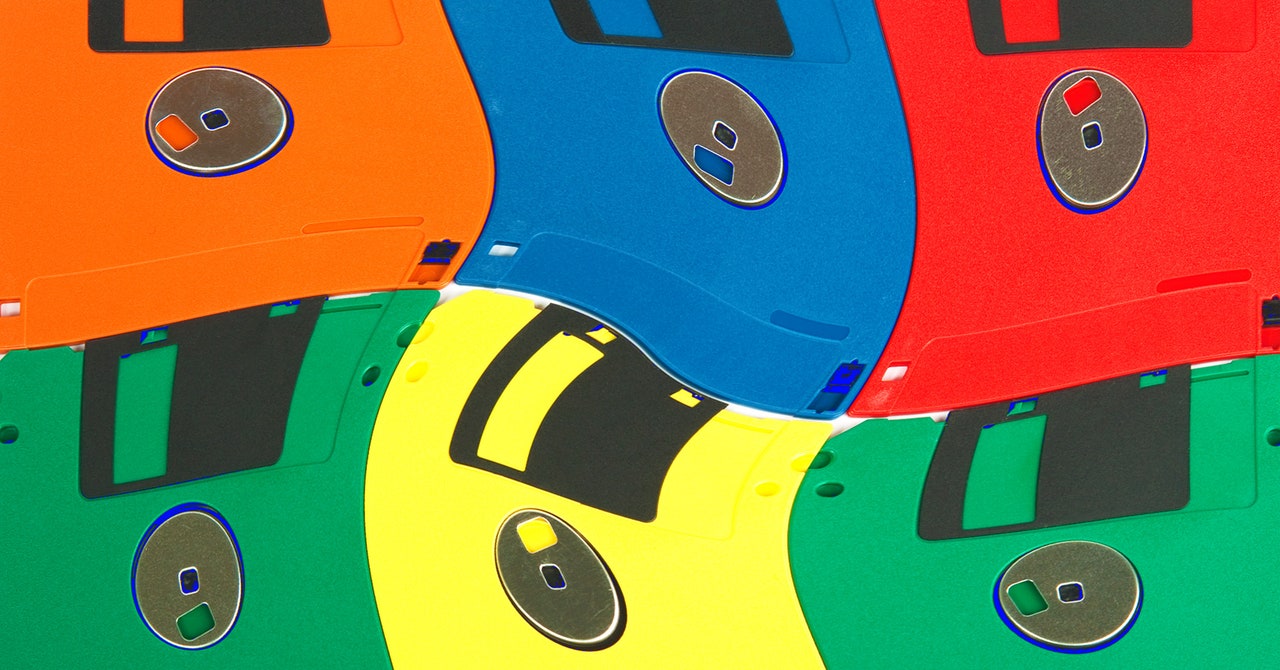
The San Francisco Municipal Transportation Company (SFMTA) board has agreed to spend $212 million to get its Muni Metro light rail off floppy disks.
The Muni Metro’s Automated Prepare Management System (ATCS) has required 5¼-inch floppy disks since 1998, when it was put in at San Francisco’s Market Road subway station. The system makes use of three floppy disks for loading DOS software program that controls the system’s central servers. Michael Roccaforte, an SFMTA spokesperson, gave additional particulars on how the sunshine rail operates to Ars Technica in April, saying: “When a prepare enters the subway, its onboard laptop connects to the prepare management system to run the prepare in automated mode, the place the trains drive themselves whereas the operators supervise. Once they exit the subway, they disconnect from the ATCS and return to guide operation on the road.”
After beginning preliminary planning in 2018, the SFMTA initially anticipated to maneuver to a floppy-disk-free prepare management system by 2028. However with Covid-19 stopping work for 18 months, the estimated completion date was delayed.
On October 15, the SFMTA moved nearer to ditching floppies when its board accepted a contract with Hitachi Rail for implementing a brand new prepare management system that does not use floppy disks, the San Francisco Chronicle reported. Hitachi Rail tech is claimed to energy prepare programs, together with Japan’s bullet prepare, in additional than 50 international locations. The $212 million contract contains assist companies from Hitachi for “20 to 25 years,” the Chronicle mentioned.
The brand new management system is meant to be 5 generations forward of what Muni is utilizing now, Muni director Julie Kirschbaum mentioned, per the Chronicle. Additional illustrating the sunshine rail’s dated tech, the present ATCS was designed to final 20 to 25 years, that means its anticipated expiration date was in 2023. The system nonetheless works effective, however the threat of floppy disk knowledge degradation and challenges in sustaining experience in Nineteen Nineties programming languages have additional inspired the SFMTA to hunt upgrades.
A lot of Work to Do
Past the floppies, although, the Muni Metro wants many extra upgrades. The SFMTA plans to spend $700 million (together with the $212 million Hitachi contract) to overtake the sunshine rail’s management system. This contains changing the loop cable system for sending knowledge throughout the servers and trains. The cables are mentioned to be a extra urgent concern than the usage of floppy disks. The growing old cables are fragile, with “much less bandwidth than an outdated AOL dialup modem,” Roccaforte beforehand instructed Ars. The SFMTA is reportedly planning for Hitachi to begin changing the loop cables with a brand new communication system that makes use of Wi-Fi and mobile indicators for monitoring trains by 2028. Nonetheless, the SFMTA’s board of supervisors nonetheless must approve this, the Chronicle mentioned.
Along with outdated storage codecs and the communication infrastructure, the Muni’s present ATCS contains onboard computer systems tied to propulsion and brake programs, in addition to native and central servers, and extra. The SFMTA’s website says that the present estimated completion date for the whole overhaul is “2033/2034.” Based on the offered timeline, it seems just like the subway know-how alternative part is predicted to happen in “2027/2028,” after which there’s an on-street know-how set up part.
Like with different entities, the SFMTA’s gradual transfer off floppy disks may be attributed to complacency, finances restrictions, and problems in overhauling vital know-how programs. Varied different organizations have additionally been gradual to ditch the dated storage format, together with in Japan, which solely stopped using floppy disks in governmental programs in June, and the German navy, which continues to be making an attempt to determine a replacement for 8-inch floppies.
This story initially appeared on Ars Technica.






